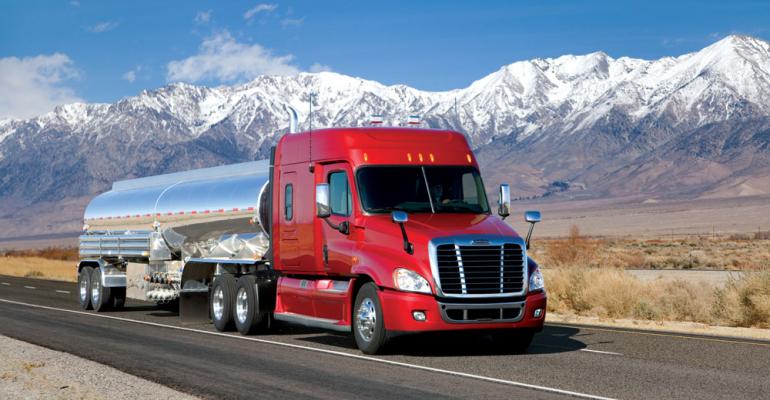BIRMINGHAM, MI – With fortunes uncertain in Europe, Daimler turns its eye toward the U.S. as a platform for stable growth.
The parent company of Freightliner and Mercedes-Benz says all indicators point to continued strong truck and luxury-car sales in the U.S. A senior Daimler executive estimates that of the auto maker’s $42 billion profit in 2012, $16 billion was generated in the country.
“I would rate the U.S. behind China’s growth rate as the best economic-stability driver in the world,” Wilfried Porth, human resources and labor relations director, tells reporters during a roundtable here.
In Tuscaloosa, AL, where Mercedes builds C-Class sedans and the R-, M- and GL-Class cross/utility vehicles, Daimler plans to add 1,000 workers to a staff of nearly 3,000, in contrast with 800 layoffs at its European truck operations.
Year-to-date, Porth notes, Mercedes and Freightliner sales have topped the 100,000-unit mark. “It shows the premium market is very strong in the U.S.,” he says. “Customers really enjoy our new products with the best fuel efficiency in the market.”
Daimler will add a fifth model at Tuscaloosa in 2015, but has not disclosed which vehicle that will be.
As production expands, Daimler has been in discussions with the United Auto Workers union, which has sought to organize Tuscaloosa workers. Porth says the auto maker always has been “completely neutral” toward labor unions in the U.S. and notes American Freightliner workers are organized.
From a sales perspective, Porth says, the UAW’s partnership with the Detroit Three has made winning American buyers difficult, even as Mercedes nears 20 years in Tuscaloosa. “We have some challenges in marketing because of the history of the Big Three.”
The sales outlook is more promising in China, where Daimler and other auto makers are hustling in a booming market with customers not wedded to specific brands.
“What you see is that a lot of people are very eager to have success, and the car is still a real symbol for, ‘Yes, I have achieved something, so I want to show that with a car,’” Porth says. “Premium cars are a status symbol. China is, in that respect, a good market for us, and this is why we need to grow in that market.
“We need to build up dealerships in that area,” he adds. “This is why we see huge potential in China, and this is why for all manufacturers, China will overtake all markets.”
Only in Germany is the auto maker stable in Europe, Porth says, but adds, “even in Germany, automotive markets are down very fast.”
The executive says 75% of Daimler’s workers are concentrated in Germany, which helps keeps operations churning. All of the auto maker’s European plants are at full capacity and only 5% of its workforce is temporary.
“We are discussing at the moment to go for an 18-month or a 24-month (vehicle-production) cycle because of the volatile situation of the industry,” Porth says of German production. Union negotiations there are difficult because of Daimler’s numerous agreements with suppliers.
But investments in facilities and operations outside Germany will cycle back to the home country. “Honestly speaking, 70% of our investments are going to our German locations,” Porth says. “We will strengthen our German locations. Our growth is generated outside of Germany.”





